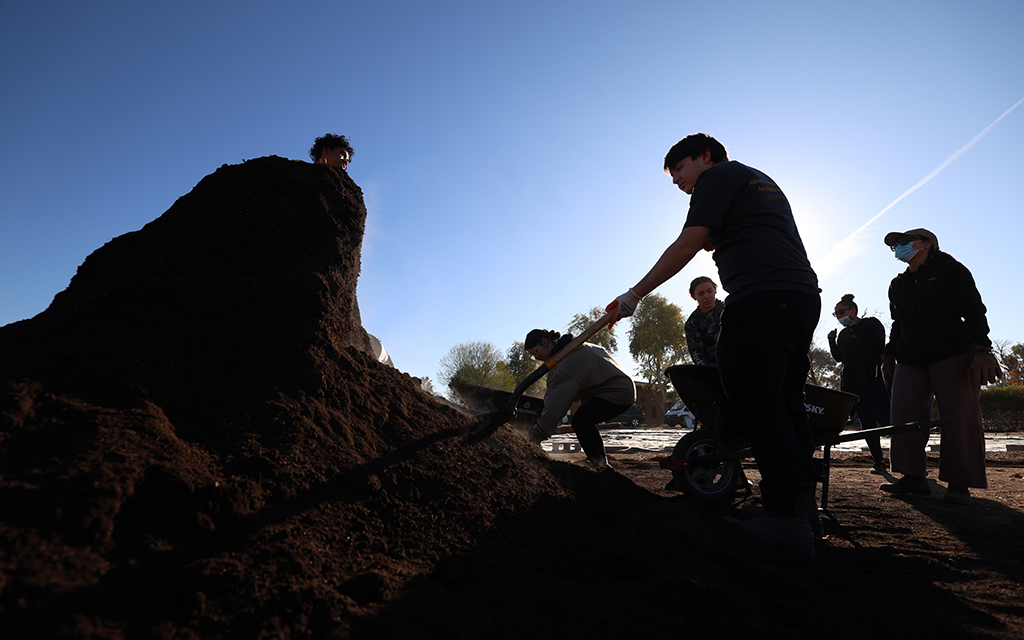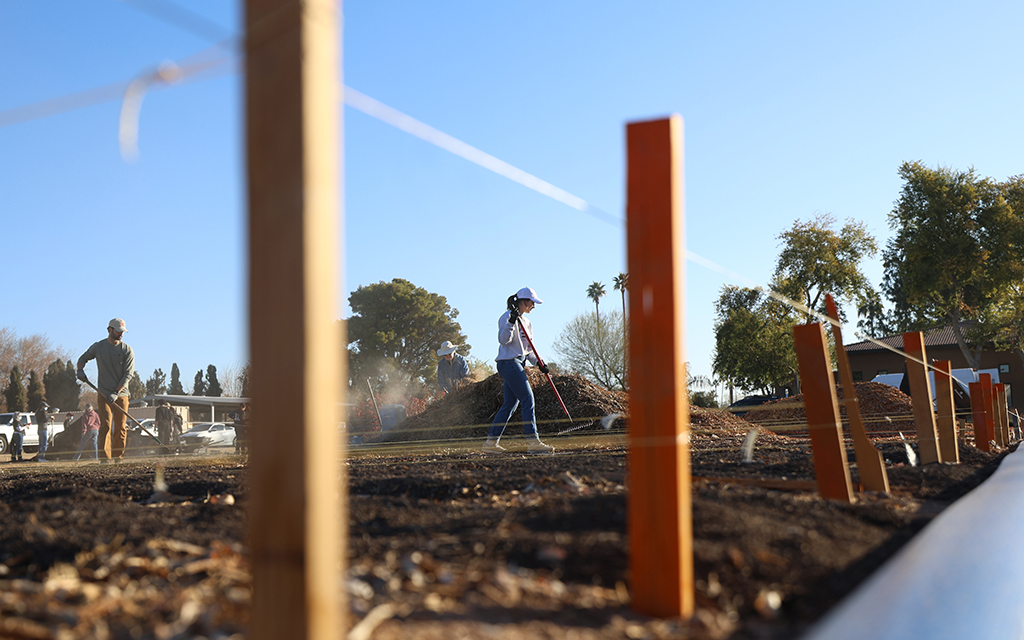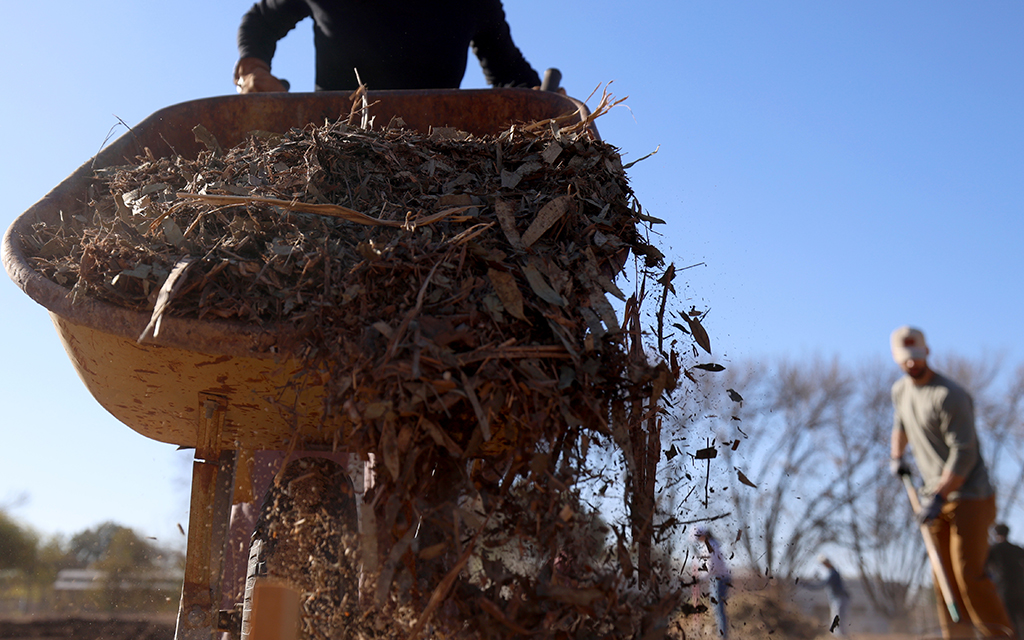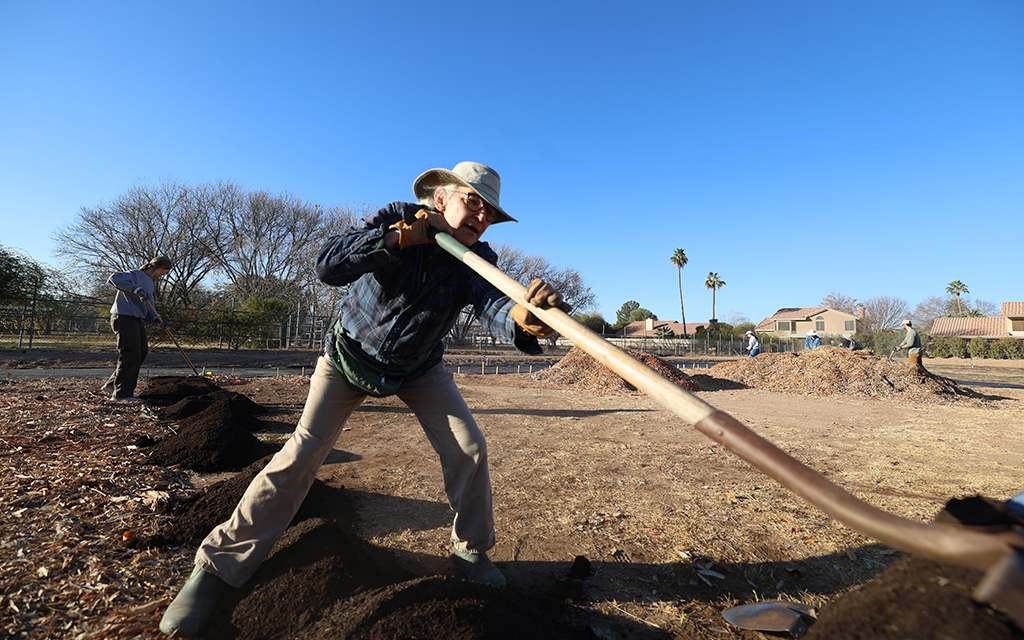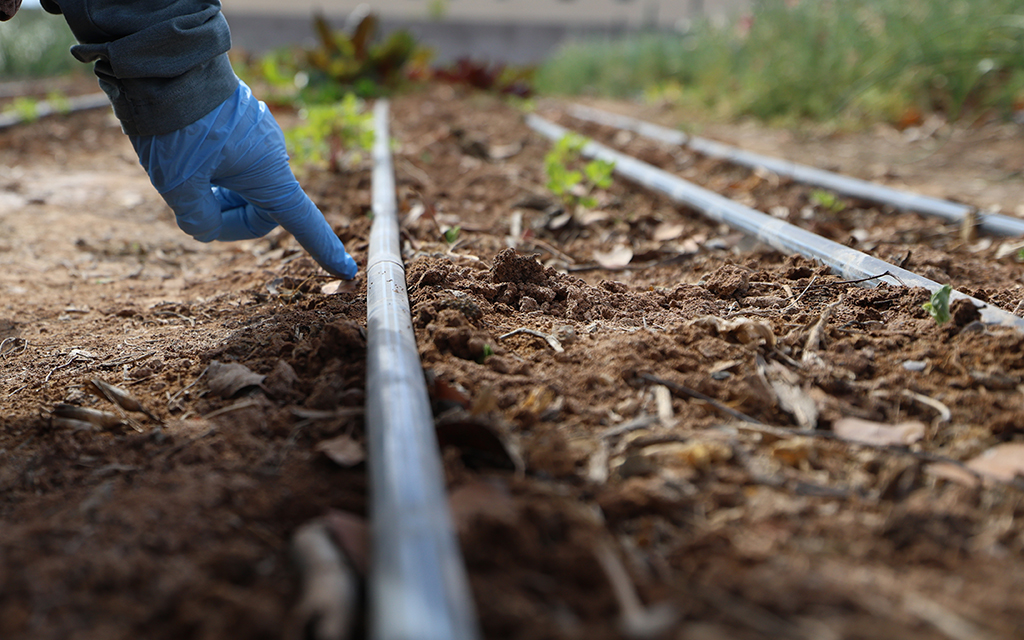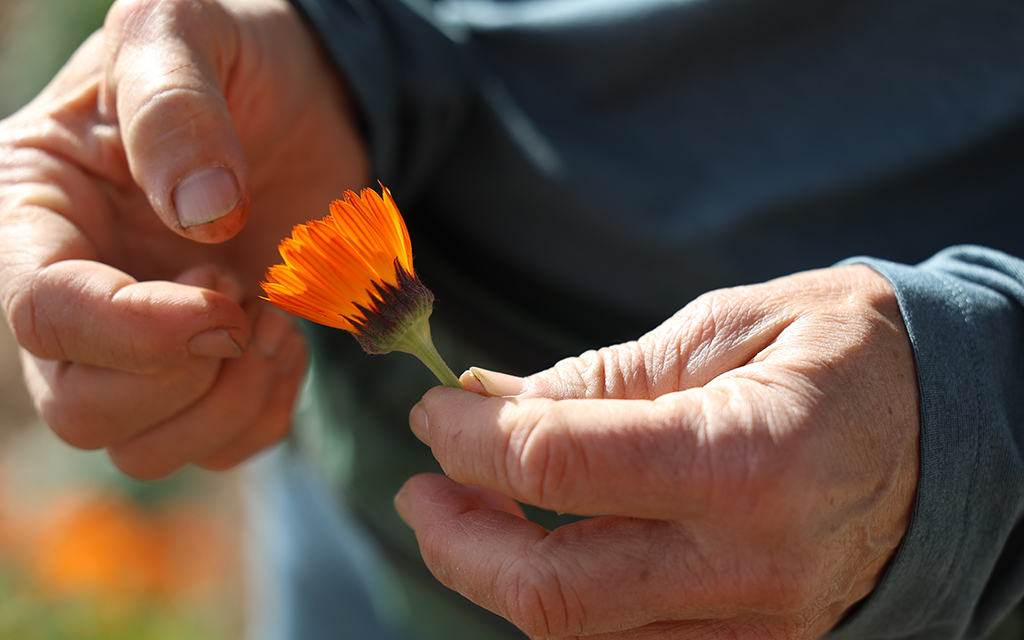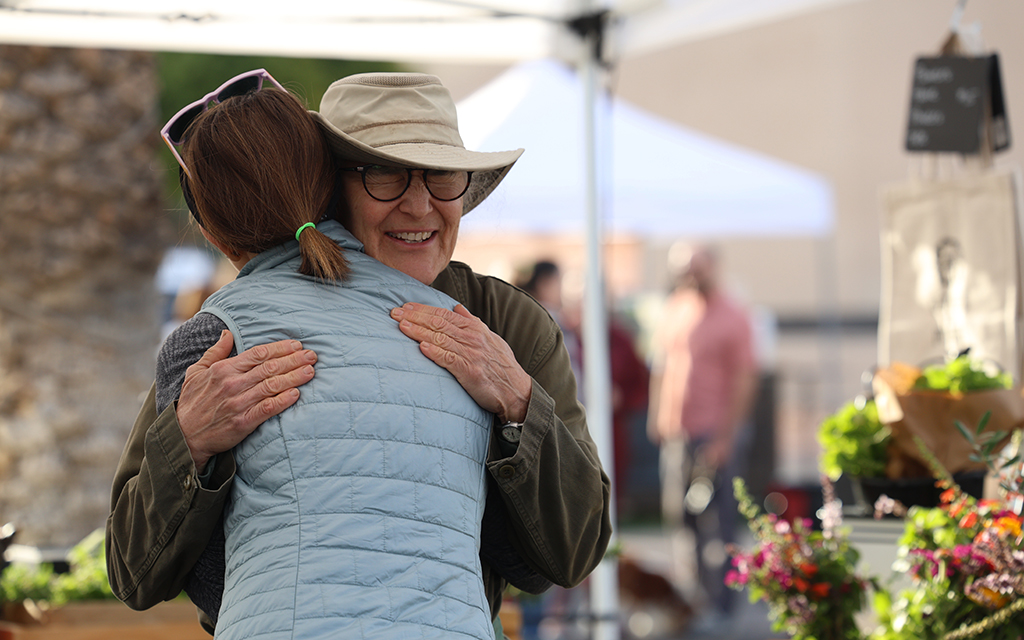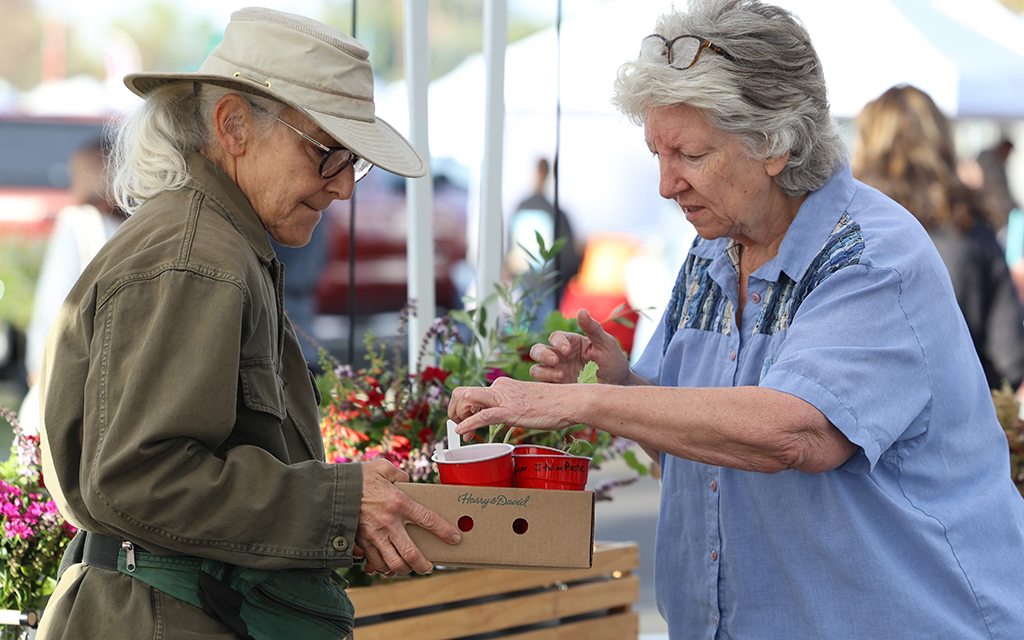‘The scale is so small, but the power is big’: Help-A-Farm program supports community connections to local agriculture
‘The scale is so small, but the power is big’: Help-A-Farm program supports community connections to local agriculture
The Arizona Sustainability Alliance Help-A-Farm program connects volunteers with small farms in the Phoenix area, like Bene Vivendo, to promote education and support for the local food system.
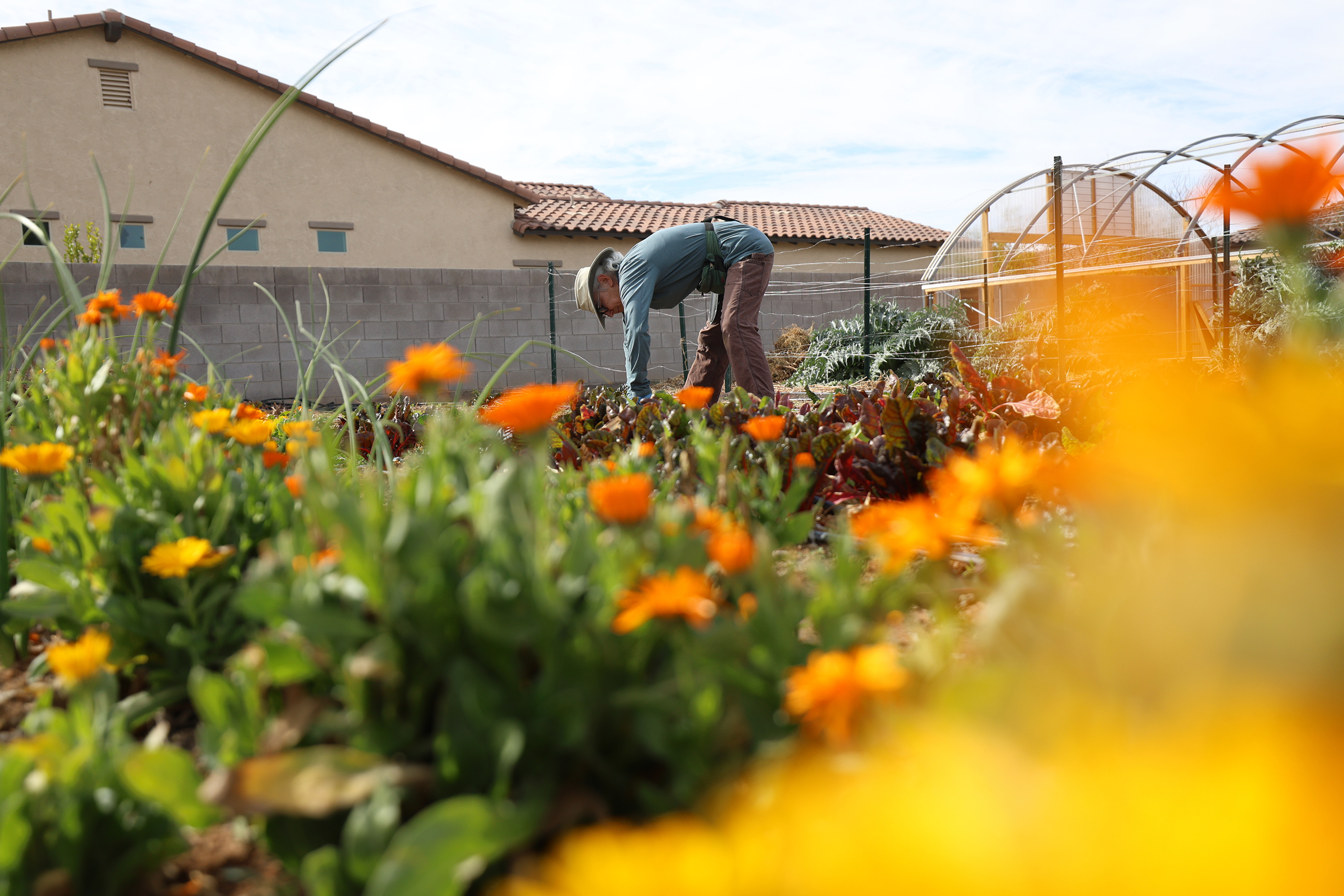
Emily Heller harvests produce grown on land she leases in Chandler for her farm, Bene Vivendo, on Feb. 9, 2025. (Photo by Sydney Lovan/Cronkite News)
